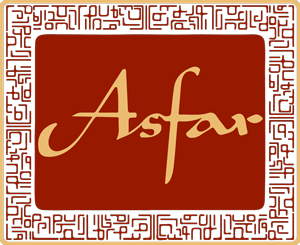As Remembrance Day falls during this issues’ coverage, and red poppies begin to adorn our lapels in preparation for the nationwide sombre ceremonies of remembrance on the 11th hour of the 11th day of the 11th month, I think it is important to honour the ultimate sacrifice that Arabs made to defend and protect their protector, Great Britain.
As the small but experienced British Expeditionary Force set off from the ports of Britain towards the fields of Belgium in September 1914, the call went out across His Majesty’s colonies and protectorates for reinforcements if such a need should ever arise. As the unexpected might of the Kaiser’s army shook the BEF to the core at the First Battle of Ypres on 19 October 1914, Arabs from across the Empire came forward to sign up for the long journey towards Europe in defence of Britain.
The British Muslim Heritage Centre exhibition on the Arab Muslim contribution to the war effort, in Manchester, describes how British politicians and newspapers were eager to do whatever they could to make these troops feel at home (or as at home as possible in unfamiliar cold and wet European trenches):
“[Army authorities] realised it was a huge amount of manpower – having (Arab) Muslim soldiers on side would be a massive asset. There were examples of them trying to be culturally sensitive and offer them space to complete their religious rites.”
Meanwhile in Germany, the Kaiser established a show prisoner of war camp in the town of Zossen where Arab troops were given preferential treatment in an attempt to get them to defect to the Central Powers. In this camp, known as the Half Moon Camp, the first mosque in Germany was built. This is evidence of the importance of Arab (Muslim) soldiers during the war, with both sides using every tactic available to keep these foreign fighters on their side.
As the war in Europe progressed, not taking into account battles in Arabia and North Africa, more and more Arab soldiers were both voluntarily and forcibly conscripted into joining the British Army. But, as Arab brothers and sons and fathers fought side-by-side, they saw their friends and relatives being killed by enemy firepower and gas attacks on a much larger scale – leaving a lasting legacy that would come to dominate post-war political dialogue across the Arab world.
The Brighton Pavilion, the Taj Mahal shaped palace on the south coast, was primarily a hospital for injured Indian troops, some of which were Muslims, but there were also a small number of Arabs who were taken there for treatment too. King George V ordered that there was a separate kitchen for preparing Halal meals for Muslim soldiers, and he banned pork products from the building so as to ensure not to offend Muslims, including Arabs, who were fighting in His Majesty’s Imperial Army.
It is thought that around 34,000 Arab troops died fighting for the allied powers (Russia, Belgium, Britain and France – but mainly the latter two Empires), but of course the true number is likely much higher given the censorship that existed at the time and the sheer extent of casualties that took many lives after the armistice.
As Britain pauses for an important 2-minutes of silence on 11 November, it is crucial that we keep alive the memory of those who gave their lives so that we could live in a free and prosperous society a century ago. But it is equally important to remember that those who died on the battlefields of Europe were not just British, French, German, Russian or Belgian, they were also Indian Sikhs, Hindus, Muslims and Jains, North African Muslims, Arab Muslims, Christians, Jews and others.
We owe a great deal of respect and praise for Arab boys and men who left their homes and families behind to go and fight alongside Europeans in the trenches.
American war veteran Brian Turner, although not of the First World War, wrote an apt poem in his book Here, Bullet that suits this article:
